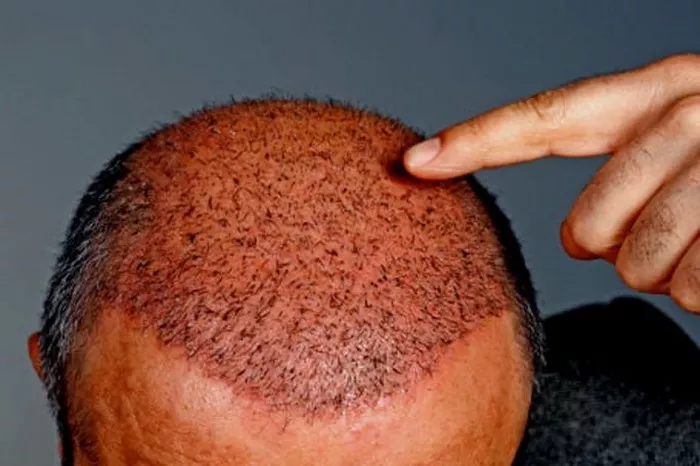If you’ve recently undergone a hair transplant, you’re likely experiencing a range of post-operative symptoms, with itching being one of the most common. This article delves into the itching phase after a hair transplant, providing you with essential information to help you understand and manage this temporary discomfort effectively. We’ll explore the factors influencing the duration of itching, ways to alleviate it, and what you can expect during the recovery period.
Understanding the Itching Phase
After a hair transplant procedure, itching typically starts within the first few days and can persist for several weeks. This itching sensation can vary in intensity and might be quite bothersome for some individuals. It occurs as a natural part of the healing process, primarily due to the growth of new hair follicles and the formation of scabs.
Scabbing is a vital component of the healing process after a hair transplant. Scabs form as the body’s response to the tiny incisions made during the transplant. These scabs protect the grafts and allow them to anchor securely to your scalp. As the scabs develop and eventually fall off, itching is common.
Factors Influencing Itch Duration
Factors influencing the duration of itching after a hair transplant are multifaceted and can significantly vary from one individual to another. It’s crucial to understand these factors to manage post-operative discomfort effectively. Let’s delve deeper into what influences how long itching lasts:
1. Hair Transplant Technique:
The choice of hair transplant technique plays a substantial role in determining the itch duration. Follicular Unit Transplantation (FUT) and Follicular Unit Extraction (FUE) are the two primary methods. FUT involves a linear incision, while FUE employs tiny, scattered incisions. The technique used can affect scab formation and, subsequently, the duration of itching.
2. Individual Healing Factors:
Each person’s body responds uniquely to surgery and the healing process. Some individuals naturally have a faster or slower rate of healing, which can influence how quickly itching subsides.
3. Post-Operative Care:
The aftercare and hygiene practices you follow can have a significant impact on itch duration. Proper shampooing, gentle cleansing, and avoiding infection are key factors. Your surgeon’s instructions on care should be closely followed.
4. Inherent Scalp Sensitivity:
Some people have more sensitive scalps than others, which can intensify itching. If you are prone to skin conditions or allergies, it might increase the duration and severity of itching.
5. Graft Type and Density:
The type of grafts used and their density can also influence itching. If the grafts are closely packed together, the itching might be more pronounced. Additionally, the size and depth of grafts play a role.
How to Relieve Itching?
Here’s how to relieve itching:
1. Proper Hydration
Staying well-hydrated is essential to ensure a smooth healing process and minimize itching. Adequate hydration aids in the scab-softening process, making them easier to fall off naturally.
2. Avoid Scratching
While it might be tempting to scratch the itchy areas, this can be detrimental to the healing process. Scratching can damage the newly transplanted hair follicles and may result in infection. To avoid scratching, consider wearing a loose-fitting hat or applying a cool, damp cloth to the itchy areas for relief.
3. Gentle Shampooing
Proper shampooing is essential to remove any scabs or debris from the transplanted area. It’s crucial to use a mild, sulfate-free shampoo as recommended by your surgeon. Be gentle when washing your hair to avoid disturbing the grafts.
Stages of Scalp Itching Recovery
The following are the stages of scalp itching recovery:
1. Initial Itch Peaks
In most cases, itching will be at its peak during the first few days to the first week following the hair transplant procedure. This is a normal part of the healing process and indicates that the grafts are settling in.
2. Gradual Improvement
As time progresses, the itching should gradually subside. By the end of the first few weeks, you should notice a significant reduction in itching. Most patients find relief as the scabs fall off, and the grafts begin to establish themselves.
3. Complete Resolution
Typically, itching after a hair transplant should completely resolve within four to six weeks, but this can vary depending on individual factors. After this period, you should experience a significant reduction in discomfort and enjoy the benefits of your new hair.
When to Seek Medical Advice?
Here’s when to seek medical advice:
1. Prolonged Itching
While itching is normal after a hair transplant, if you experience severe or prolonged itching that doesn’t improve over time, it’s essential to consult your surgeon. This could be a sign of an underlying issue that requires attention.
2. Signs of Infection
If you notice signs of infection, such as increased redness, swelling, or discharge, it’s crucial to contact your surgeon immediately. Infections can exacerbate itching and may affect the overall success of your transplant.
3. Allergic Reactions
In rare cases, individuals may develop allergic reactions to medications or topical solutions used during the recovery period. If you experience symptoms such as severe itching, rash, or difficulty breathing, seek medical attention without delay.
See Also: Which Foods Cause Hair Fall: A Comprehensive Guide
Conclusion
In conclusion, itching is a common and temporary side effect of hair transplant surgery. Understanding the factors that influence the duration of itching, following proper post-operative care, and having realistic expectations for the recovery process will help you manage this discomfort effectively. Remember that while itching can be bothersome, it is a sign that your new hair is on its way to flourishing.
If you have concerns or experience prolonged, severe itching, it’s crucial to consult your surgeon promptly. By following their guidance and practicing patience during the recovery period, you can look forward to enjoying the full benefits of your hair transplant in due course.


